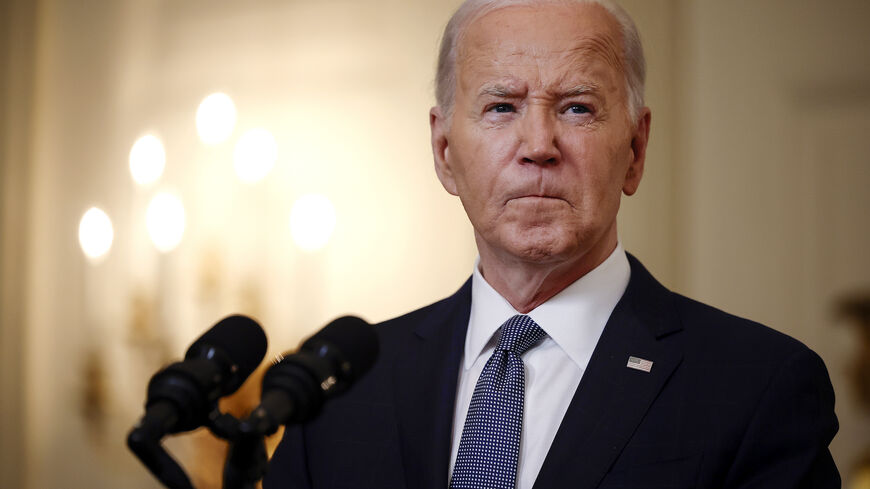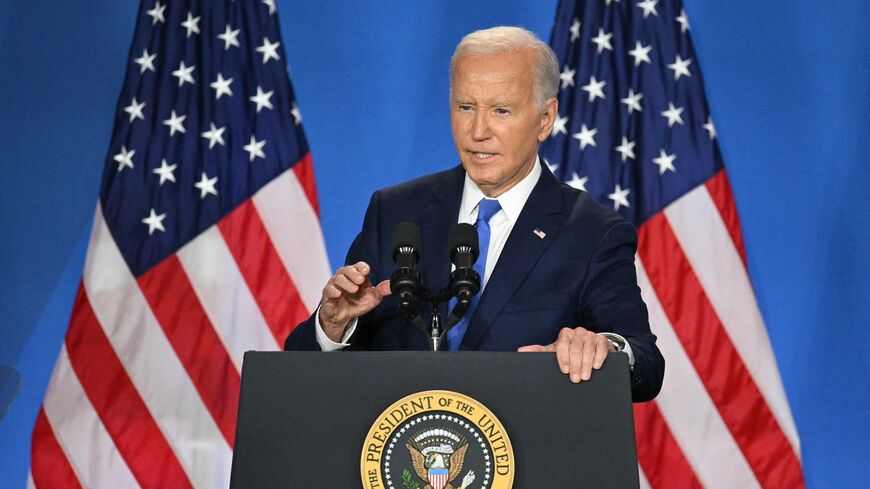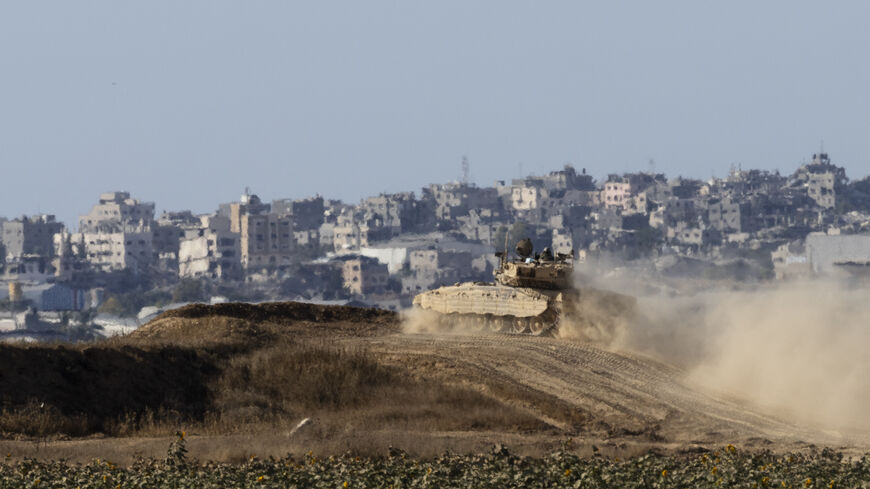Israeli occupation, Hamas rule, vacuum ‘unacceptable’ in Gaza: Blinken
The top US diplomat urged Israel to present a credible post-war governance plan as it shifts to a new, lower-intensity phase in its operations against Hamas.

WASHINGTON — As Israel winds down major military operations in the Gaza Strip, Secretary of State Antony Blinken warned its leaders Monday against an indefinite occupation that could fuel a Hamas insurgency.
"One way or another, when this conflict ends, it cannot and must not end with a vacuum," Blinken said during an event at the Brookings Institution think tank in Washington.
“There are three things that are unacceptable for Gaza's future: an Israeli occupation; Hamas perpetuating its leadership; or chaos, anarchy, lawlessness," he added.
Blinken spoke after Israeli Prime Minister Benjamin Netanyahu said earlier on Monday that his country’s forces were “advancing toward the final stage of eliminating” Hamas, which has ruled Gaza since 2007. The Israeli military will “continue to hit its remnants,” Netanyahu told cadets at Israel’s National Security College.
Israel on Monday ordered a mass evacuation of civilians from the eastern part of Gaza's second-largest city of Khan Younis, an indication that Israeli ground troops may return after withdrawing from the city they cleared in April.
The United States has provided military and diplomatic support to Israel during its nine-month campaign against Hamas, which the Gaza Health Ministry says has killed at least 37,900 people and wounded more than 87,000. Israel launched its war in response to the militants’ killing of 1,200 people on Oct. 7 and taking some 250 hostages.
US-backed negotiations have stalled over a tentative deal to pause the war in exchange for the release of the estimated 120 remaining captives. Blinken described the three-phase proposal as “achievable” if Hamas’ powerful leader in Gaza, Yahya Sinwar, agrees to it.
“In not saying yes, Mr. Sinwar is not only holding onto Israeli, American and other hostages, he's continuing to make a hostage of Palestinian children, women and men who are caught in a horrific crossfire of Hamas’ making,” Blinken said.
Hamas has insisted the text include guarantees of a permanent cease-fire and Israel’s full troop withdrawal. Israeli Prime Minister Benjamin Netanyahu faces pressure from his right-wing ministers not to accept a truce deal that fails to ensure the Palestinian militant group’s total defeat.
Asked about a plan B if the cease-fire effort fails, Blinken said the administration is “looking at what comes next.”
“We've heard the Israelis talk about a significant downshift in their operations in Gaza. Remains to be seen,” he added.
Al-Monitor has previously reported the next phase of Israel’s military operation is likely to entail carving out a "security perimeter" of 1-2 kilometers (0.6-1.2 miles) in width along the Gaza side of the border with Israel and deploying troops there to guard against Hamas incursions.
The Wall Street Journal reported Saturday that another plan under consideration in Israel involves establishing geographical “bubbles” where Palestinians without Hamas links would live in temporary shelters as the Israeli military carries out mop-up operations to keep the militant group from reconstituting.
Blinken said the United States had been working with regional partners since January to develop "concrete proposals" for Gaza’s security and governance when the war ends. He reiterated calls for Israel’s leadership to articulate its own plan to replace Hamas rule in the Palestinian territory.
Netanyahu has resisted the Biden administration’s proposal to reinstall the Palestinian Authority as the main governing authority in Gaza. The Ramallah-based PA, which exercises limited autonomy in the West Bank, was ousted from Gaza by Hamas in 2007.
Israel’s shift to a more targeted campaign in Gaza comes as it prepares for a possible war in Lebanon against Iran-backed militant group Hezbollah, which has been attacking northern Israel since October.
"None of the main actors want a war,” Blinken said Monday. “On the other hand, you have forces and momentum that may be leading in that direction."








